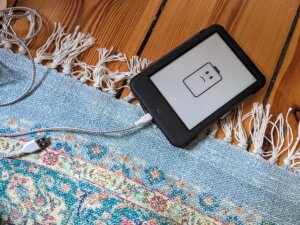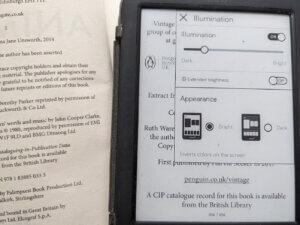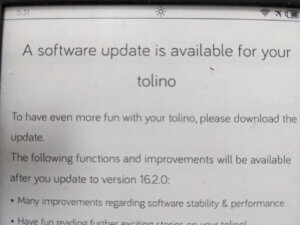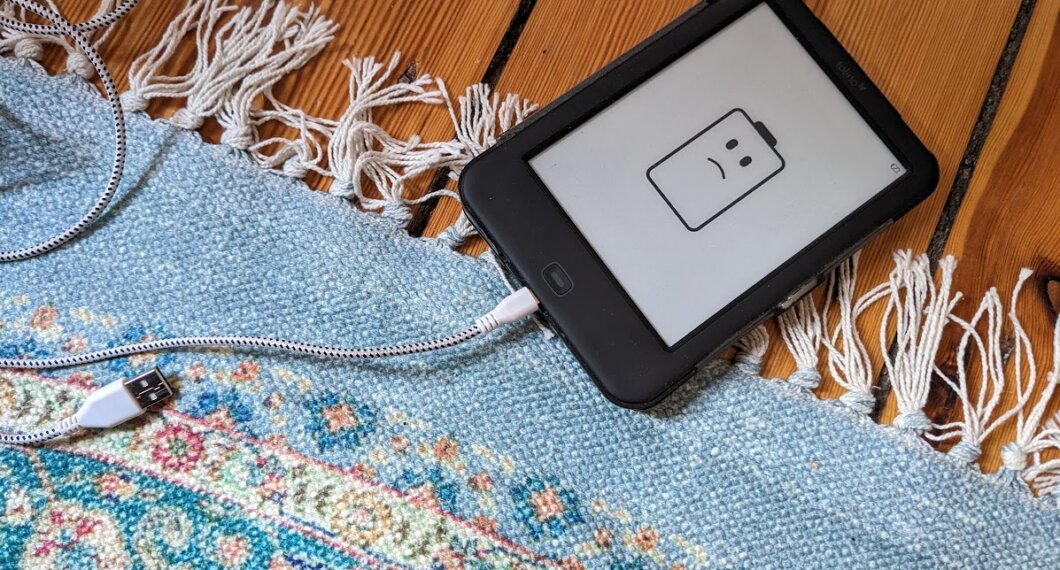 E-book readers, devices or apps that allow us to read books digitally, are used or ignored, loved and hated, but sometimes for peculiar reasons.
E-book readers, devices or apps that allow us to read books digitally, are used or ignored, loved and hated, but sometimes for peculiar reasons.
Advantages of an E-Book-Reader
Indisputable advantage: compactness and weight. The digital device is much lighter than a corresponding stack of unread books.
Weight vs. Serendipity
This advantage is irrelevant for infrequent readers. If I read fewer pages on vacation than at home because I prefer going to concerts and chatting with new acquaintances in a pub, one book might be enough for me to take; alternatively, I could read a magazine in a café. It can also be exciting to swap the only book on the book exchange shelves for another one I would never have chosen if there had been more choices.
Look up, Search and Translate
Another advantage of an e-book is the reference and search functionality. Although looking things up on the same device only saves me a few clicks and movements compared to a smartphone and also only works where there is Internet access, I have often missed a full-text search in a book on paper. For translating, I often use apps and websites into which I can also speak my search if I know how a word is pronounced. I remember that I even used to carry a compact mini foreign language dictionary with me, which was amazingly practical and useful.
Font size and illumination
 The font size can also be adjusted, so I may not need glasses or a magnifier.
The font size can also be adjusted, so I may not need glasses or a magnifier.
Other supposed advantages of the e-book: the lighting is already built in. Anyone who likes to read in the dark and used to do so with a flashlight under the comforter will be pleased, otherwise I think this is irrelevant.
Subjective Counter Arguments
Conversely, there are also some arguments against e-books that I find hard to understand. The feel, the noise when turning the pages, and the smell of old paper are all a matter of taste. I’m generally happy to accept the point of cover design, even if many printed books don’t exactly impress with their creative and aesthetic masterpieces. I like all that too, but only because I grew up to learn that these sensory impressions go hand in hand with the relaxed attention of reading.
Some people seem to regard books or any form of bound printed matter as soulful sanctuaries that must never be destroyed, and they compare throwing a book into the wastepaper bin to burning historical books. At least that’s how I understood Christine Westermann when talking to Mona Ameziane in their podcast “Two sides” (a wordplay, as “zwei Seiten” also means “two pages” in German). I know a feature editor who even kept printed train timetables in his bookcase for decades because he didn’t have the heart to part with any single book.
Reading without owning
I personally never had such an attachment to individual copies of books. Most of the books I’ve read in my life I’ve borrowed from libraries exchanged for other books or forgotten to claim back after borrowing them from someone else. Autographs from authors also leave me cold, as I almost always appreciate them for their content, not their handwriting.
The only rational reason to hold on to individual exams is to keep my own handwritten notes. My own notebooks are also unique and their contents are not completely redundantly saved elsewhere.
Notes as an argument for and against
Curiously, notes are an argument that is used both for and against e-books. In the podcast mentioned above, one writes in her books, underlines and dog-ears, the other marks digitally and in this way creates searchable notes with links and quotations from external sources.
Questionable Ecological Balance of New Media
One questionable argument for e-books was environmental protection. Just as digitization in general promised a paperless office, forests would be spared and the climate protected if less paper was used to print books. Instead, technical devices are produced that require electricity and later become electronic waste. A deceptive rebound effect?
Technology as a Frustrating Disimprovement
What has disruptively destroyed many jobs in the daily press because fewer and fewer people subscribe to daily newspapers or even read them at all does not work in the same way for nonfiction, fiction, and entertainment literature. The attempt to humanize technology fails to inspire enthusiasm in me; it irritates me instead. A digital book requesting that I update my reader operating system “to have even more fun with it” does not make things any better.
 Like the change from combustion engines to electric cars, we pay for the supposed progress with hardware production and electronic waste. Rare earths, often produced using child labor in an environmentally destructive way, are built into devices whose lifespan is far too short. Software updates, planned obsolescence, defects, but above all, the predictable decrease in battery power makes a standard e-book reader, like a smartphone, unusable without a cable after a few years. It’s a shame when I run out of power just before reading the most exciting pages!
Like the change from combustion engines to electric cars, we pay for the supposed progress with hardware production and electronic waste. Rare earths, often produced using child labor in an environmentally destructive way, are built into devices whose lifespan is far too short. Software updates, planned obsolescence, defects, but above all, the predictable decrease in battery power makes a standard e-book reader, like a smartphone, unusable without a cable after a few years. It’s a shame when I run out of power just before reading the most exciting pages!
Or when the device wants a software update after restarting in order to display the same book that is already there. Just as frustrating as the Google Maps app, which refuses to display the same route that I have had on the screen and in memory several times in the last few hours when I am “offline”, which from the stupid app’s point of view is already the case when the connection is weak or is throttled due to a lack of an expensive data plan.
Further reading: an article about slow internet written by someone who lived on the South Pole: Engineering for Slow Internet.


